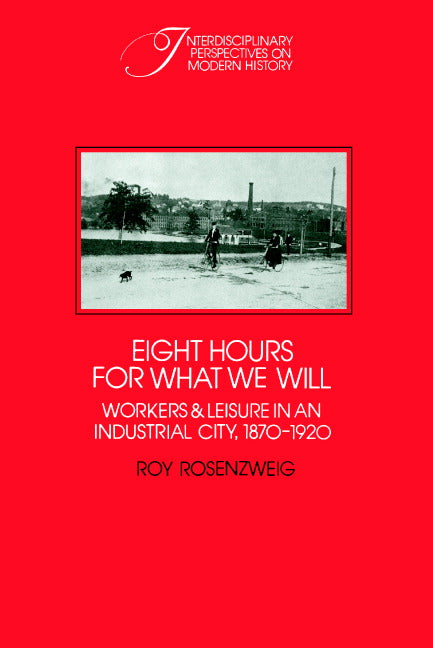Freshly Printed - allow 8 days lead
Couldn't load pickup availability
Eight Hours for What We Will
Workers and Leisure in an Industrial City, 1870–1920
Roy Rosenzweig (Author)
9780521313971, Cambridge University Press
Paperback, published 31 October 1985
320 pages
22.8 x 13.4 x 2.3 cm, 0.479 kg
'Rosenzweig provides a fascinating study of the interplay of class, ethnicity, and economics in shaping the leisure culture of Worcester's working class.' Mark Aldrich, The Journal of Economic History
In the first comprehensive study of American working-class recreation, Professor Rosenzweig takes us to the saloons, the ethnic and church picnics, the parks and playgrounds, the amusement parks, and the movie houses where industrial workers spent their leisure hours. Focusing on the city of Worcester, Massachusetts, he describes the profound changes that popular leisure underwent. Explaining what these pastimes and amusements tell us about the nature of working-class culture and class relations in this era, he demonstrates that in order fully to understand the working class experience it is necessary to explore the realm of leisure. For what workers did in the corner saloon, the neighbourhood park, the fraternal lodge hall, the amusement park, and the nickelodeon had a good deal of bearing on what happened inside the factories, the union halls, and the voting booths of America's industrial communities.
Acknowledgments
Introduction
Part I. Context: 1. Workers in an industrial city, 1870–1920
Part II. Culture: The Working-Class World of the Late Nineteenth-Century: 2. The rise of the saloon
3. Immigrant workers and the fourth of july
Part III. Conflict: Struggles Over Working-Class Leisure in the Late Nineteenth and Early Twentieth Centuries: 4. The struggle over the saloon, 1870–1910
5. The struggle over recreational space: the development of parks and playgrounds
6. The struggle over the fourth: the safe and sane july fourth movement and the immigrant working class
Part IV. Culture, Conflict, and Change: The Working-Class World of the Early Twentieth Century: 7. The commercialization of leisure: the rise of a leisure market and the persistence of the saloon
8. From rum shop to Rialto: workers and movies
Conclusion
Abbreviations used in notes
Notes
A note on sources
Index.
Subject Areas: Modern history to 20th century: c 1700 to c 1900 [HBLL], History of the Americas [HBJK]


